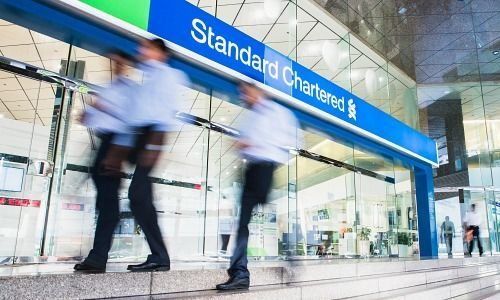Standard Chartered's New Strategy Receives «Guarded Welcome»
Investors are quietly optimistic about Standard Chartered new profit targets and cost-cutting measures. The moves are introduced to free up capital and revive the bank's faltering performance.
Standard Chartered will undertake cost-cutting measures totalling $700 million, divest its 45 percent stake in Indonesian bank Permata, while targeting annual income growth of 5 to 7 percent, as part of a three-year plan strategic plan to double the bank's return on equity to more than 10 percent by 2021.
Speaking to the Financial Times (behind paywall), Bill Winters, Group chief executive of Standard Chartered Bank said the plan would free up capital to return to investors via possible share buybacks and a higher dividend, which could double by 2021 from around 20 cents currently.
The British lender's full-year net profit was $618 million, down from $774 million in 2017, according to its full-year results for 2018 released on Tuesday.
Reducing RWA
By marking its stake in Permata as non-core, the bank said it would reduce its $260 billion in risk-weighted assets (RWA) by $9 billion. It hopes to cut another $9 billion in RWA by introducing efficiencies and ejecting low-margin clients, particularly in retail banking markets where it is weak: India, South Korea, United Arab Emirates, and Indonesia. A divestment of Permata, the fifth-biggest private sector lender in Indonesia, will bring about $1 billion , according to current market value.
These changes will allow the bank to focus on higher-return businesses such as wealth management and connecting clients with its international network, rather than lower-return mass-market retail banking, Winters said.
«Guarded Welcome»
The new strategic plan has received a «guarded welcome» from investors, the Financial Times reported (behind paywall), quoting an unnamed person close to state-owned Singapore investment fund Temasek, the bank's biggest shareholder. He said he «gets where the bank is going and thinks it’s in the right direction.» Another unnamed top-five investor said there were signs that the bank was «sort of going in the right direction,» the newspaper reported.
Last week, the bank revealed it had set aside $900 million to cover any potential fines from the U.S. and the U.K. The bank's negotiations with the U.S. on a deferred prosecution agreement have been ongoing since 2012. Its stock has lost 60 percent from its five-year high of HK$164 (US$20.9) in May 2014.



























